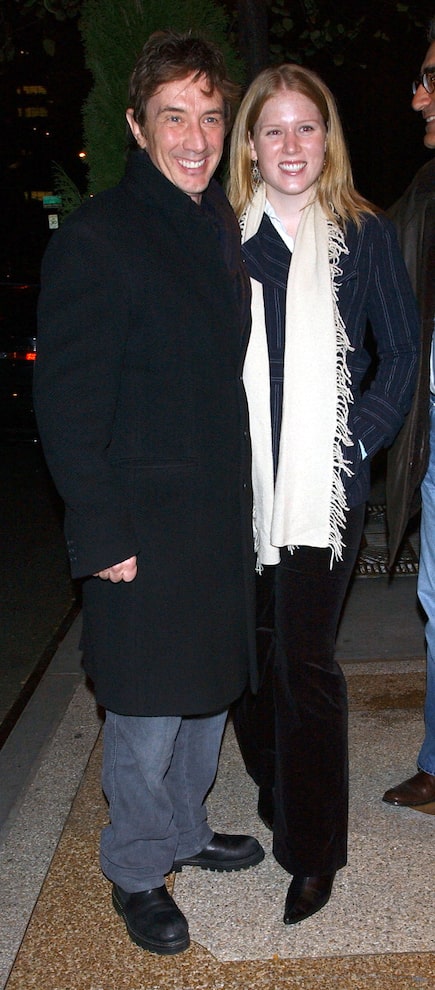Celebrity News December 06, 2023
Norman Lear, TV Legend Who Created 'All in the Family,' Dies at 101
 NBCUniversal
NBCUniversal
Norman Lear, the indefatigable TV legend who created classic, genre-defining, culture-driving series, died Tuesday at his L.A. home.
He was 101, and had continued working until the end of his storied life.
His death was confirmed to The New York Times by his family spokeswoman, Lara Bergthold. His family said in a statement, “Thank you for the moving outpouring of love and support in honor of our wonderful husband, father, and grandfather. Norman lived a life of creativity, tenacity, and empathy. He deeply loved our country and spent a lifetime helping to preserve its founding ideals of justice and equality for all. Knowing and loving him has been the greatest of gifts. We ask for your understanding as we mourn privately in celebration of this remarkable human being.”
“I loved Norman Lear with all my heart,” Rob Reiner, who played Mike "Meathead" Stivic on Lear's iconic "All in the Family," tweeted. “He was my second father."
As the father of TV sitcoms, Lear's contributions to television are incalculable. His productions blended humor with drama, sometimes offering laugh-out-loud water-cooler moments, other times surprising with gritty realism.
So many moments from his shows are burned into the brains of those who watched. Sammy Davis Jr. kissing bigot Archie Bunker, Maude deciding to have an abortion, George Jefferson unwittingly attending a KKK meeting, patriarch James Evans dying — these and many other flashpoints helped shape what sitcoms could be.
Born July 27, 1922, in New Haven, Connecticut, Lear was a decorated WWII veteran who drifted first into publicity before discovering a flair for comedy writing.
By the '50s, he was an in-demand joke writer, working for Dean Martin and Jerry Lewis on TV and on their film "Scared Stiff" (1953), and receiving writing credits for such shows as "All Star Revue" (1950) and "The Colgate Comedy Hour" (1950-1953).
Hired to try to resuscitate the failing Celeste Holm sitcom "Honestly, Celeste!" in 1954, his first production credit arrived with "The Martha Raye Show" (1954-1956). The first series he created, "The Deputy" (1959-1961), starred Henry Fonda.
After producing specials for the likes of Fonda, Bobby Darin, Danny Kaye and Andy Williams, and producing features for Frank Sinatra (1963's "Come Blow Your Horn"), Connie Stevens (1965's "Never Too Late"), and Dick Van Dyke and Debbie Reynolds (1967's "Divorce American Style"), he developed his first mega-hit TV series, "All in the Family," in 1968. After pilots were shot in 1968, 1969 and 1970, the latter was aired — and became an instant sensation.
 Getty Images
Getty Images
"All in the Family" made an anti-hero out of racist, misogynist loud-mouth Archie Bunker (Carroll O'Connor), who was constantly at war with his dingbat wife (Jean Stapleton) and his liberal daughter and son-in-law (Sally Struthers and Reiner). The series pushed boundaries, tackling hot-button issues like racism, classism, sexism, homophobia, turning on its head the "Leave It to Beaver" template of what an American family looked like on television.
Bunker was depicted as lovable in spite of his flaws, and is still a relevant character over 50 years after the series began. His chair is in the Smithsonian.
Lear enjoyed several successful and similarly impactful spin-offs from that series. "The Jeffersons" (1975-1985) followed the Bunkers' Black neighbors (Sherman Hemsley and Isabel Sanford) as they "moved on up" thanks to their successful dry-cleaning business; "Maude" (1972-1978) focused on Edith Bunker's liberal firebrand cousin (Bea Arthur); "Archie Bunker's Place" (1979-1983) followed Archie after Edith's death.
His second big splash after "All in the Family" was "Sanford and Son" (1972-1977), an improbable hit about a cranky junk dealer played by racy comic Redd Foxx, whose Fred Sanford famously feigned heart attacks every episode, promising his late wife, "I'm comin', Elizabeth!"
With "Good Times" (1974-1979), Lear explored the life of a Black family struggling in New York City. The series made Jimmie Walker — who played stringbean wise-cracking son J.J. — a household name, and his catchphrase "dy-no-mite!" a staple of the '70s. It also provided Janet Jackson with her first recurring role on TV.
"Mary Hartman, Mary Hartman" (1976-1977) challenged the soap opera form. Starring Louise Lasser as the titular offbeat housewife, the nightly comedy employed satire and dry humor to become must-watch, love-it-or-hate-it television. It spawned "Fernwood 2-Night" (1977) and "America 2Night" (1978).
One of Lear's most straightforward family comedies, "One Day at a Time" (1975-1984), starred Bonnie Franklin as a single mom of two teen daughters (Mackenzie Phillips and Valerie Bertinelli). It was so popular that Lear was able to reboot it for a three-year run (2017-2020), this time as the story of a Cuban-American family (starring Justina Machado and Rita Moreno).
Not all of Lear's series were hits, but most of them were memorable. Adapting Lanford Wilson's' play "Hot l Baltimore" for TV in 1975, Lear offered a cast of characters that included sex workers, an undocumented immigrant, and the first gay couple depicted on American TV. His nighttime soap "All That Glitters" (1977) featured Linda Gray playing TV's first-ever transgender character. His "a.k.a. Pablo" (1984) was critically panned, but a rare example of a series anchored by Latin actors (including star Paul Rodriguez).
Other series to enjoy "the Norman Lear effect" included "The Facts of Life" (1979-1988), "Silver Spoons" (1982-1987), "Square Pegs" (1982-1983), and "227" (1985-1990).
For his contributions to TV, Lear was nominated for 17 Emmys, won six, and received Hall of Fame status in 1984. He won his last Emmy in 2020, for "Live in Front of a Studio Audience: 'All in the Family' and 'Good Times,'" one of several specials he produced in which current actors performed classic scripts from his series. He broke his own record as the oldest-ever recipient of the Emmy with that win — he was 98.
Lear was also a Peabody Award winner, Kennedy Center Honoree, and recipient of the National Medal of Arts.
As famous as Lear was for his laugh lines, he was also known as a liberal lion and ardent First Amendment supporter. As such, he co-founded People for the American Way (to which donations are appreciated), the Environmental Media Association, the Business Enterprise Trust, and the Norman Lear Center at USC.
In honor of his 99th birthday, he published an op-ed in The Washington Post, decrying the assault on voting rights and declaring, "I am a patriot, and I will not surrender that word to those who play to our worst impulses rather than our highest ideals."
Claudia Lamb, who starred on "Mary Hartman, Mary Hartman," tweeted, "I woke up to find out that Norman Lear has passed at 101. Please make a hero of him in death - he deserves it."
Lear is survived by his wife Lyn Davis Lear, his six children, and his four grandchildren.
 Getty Images
Getty Images
























